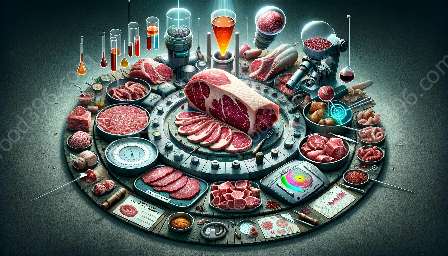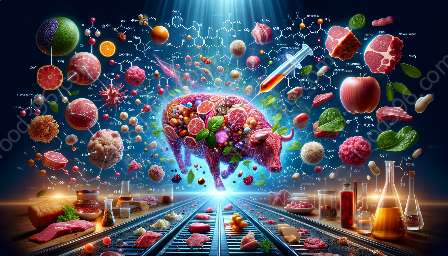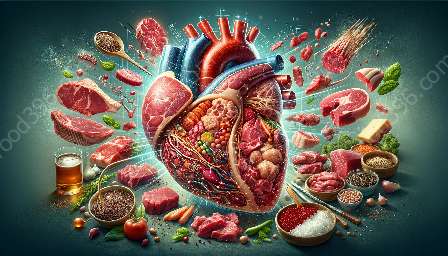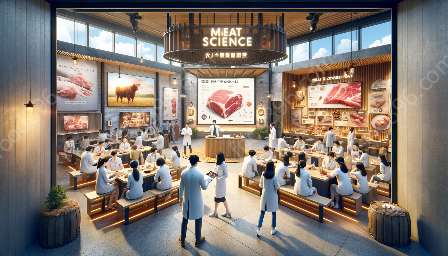Meat has been a fundamental part of human diets for millennia, providing essential nutrients and playing a central role in many cultural and culinary traditions. However, the health implications of meat consumption have been a topic of extensive research and debate. In this comprehensive exploration, we delve into the intersection of meat science, health implications, and the broader context of food and drink.
The Role of Meat in Human Nutrition
Meat, including beef, poultry, pork, and lamb, is a valuable source of high-quality protein, essential amino acids, vitamins, and minerals. It provides significant quantities of nutrients such as iron, zinc, and B vitamins, including B12—a nutrient primarily found in animal products. These nutrients are essential for various bodily functions, including growth, tissue repair, and immune system support.
Moreover, the protein in meat is considered a complete protein, as it contains all the essential amino acids the body needs. This makes meat an important dietary component, particularly for individuals following certain dietary patterns such as the paleo or ketogenic diet.
Health Implications of Meat Consumption
While meat offers important nutritional benefits, its consumption has been associated with various health implications. Research suggests that excessive consumption of red and processed meats may be linked to an increased risk of certain health conditions, such as cardiovascular diseases, certain cancers, and type 2 diabetes. This has prompted health organizations to provide dietary recommendations that advise moderation in meat consumption while emphasizing a varied and balanced diet.
Additionally, concerns have been raised about the potential presence of harmful compounds in certain types of cooked meats, such as heterocyclic amines (HCAs) and polycyclic aromatic hydrocarbons (PAHs). These compounds are formed during high-temperature cooking processes, such as grilling or pan-frying, and have been associated with an increased risk of cancer.
Understanding Meat Science
To comprehend the health implications of meat consumption, one must consider the intricate field of meat science. This discipline encompasses the study of the physical, chemical, and biological aspects of meat and the processes involved in its production, preservation, and consumption.
Meat scientists explore factors such as the composition of meat, its microbiological safety, and the impact of various processing and preservation techniques on its nutritional properties. By understanding the science behind meat, researchers aim to develop strategies that enhance the safety, quality, and healthfulness of meat products, thereby mitigating potential negative health implications associated with their consumption.
Impact on Food and Drink Choices
The health implications of meat consumption also influence our food and drink choices. Many individuals are seeking healthier alternatives to conventional meat products, leading to the emergence of plant-based meat substitutes. These products, often based on ingredients such as soy, pea protein, and mycoprotein, aim to replicate the taste, texture, and nutritional profile of traditional meats while offering potential health and environmental benefits.
Moreover, the discussion surrounding meat and health has triggered an increased interest in mindful eating and sustainable food practices. Consumers are exploring a diverse range of dietary options, including flexitarian, vegetarian, and vegan diets, which prioritize plant-based foods while minimizing or eliminating the consumption of animal-derived products. These dietary choices not only reflect a concern for personal health but also align with broader ethical and environmental considerations.
The Future of Meat and Health
The ongoing dialogue surrounding meat and health is shaping the future of food and drink. It is likely that scientific advancements in meat production, processing, and alternative sources of protein will continue to influence our dietary landscape. Meanwhile, ongoing research in meat science will further elucidate the health implications of different types of meat, cooking methods, and dietary patterns, providing valuable insights for consumers, healthcare professionals, and the food industry.
In conclusion, the relationship between meat consumption, health implications, and their connection to food and drink is a dynamic and multifaceted subject. By understanding the nutritional value of meat, the potential health concerns, and the role of meat science, individuals can make informed choices that align with their dietary preferences and well-being.



















